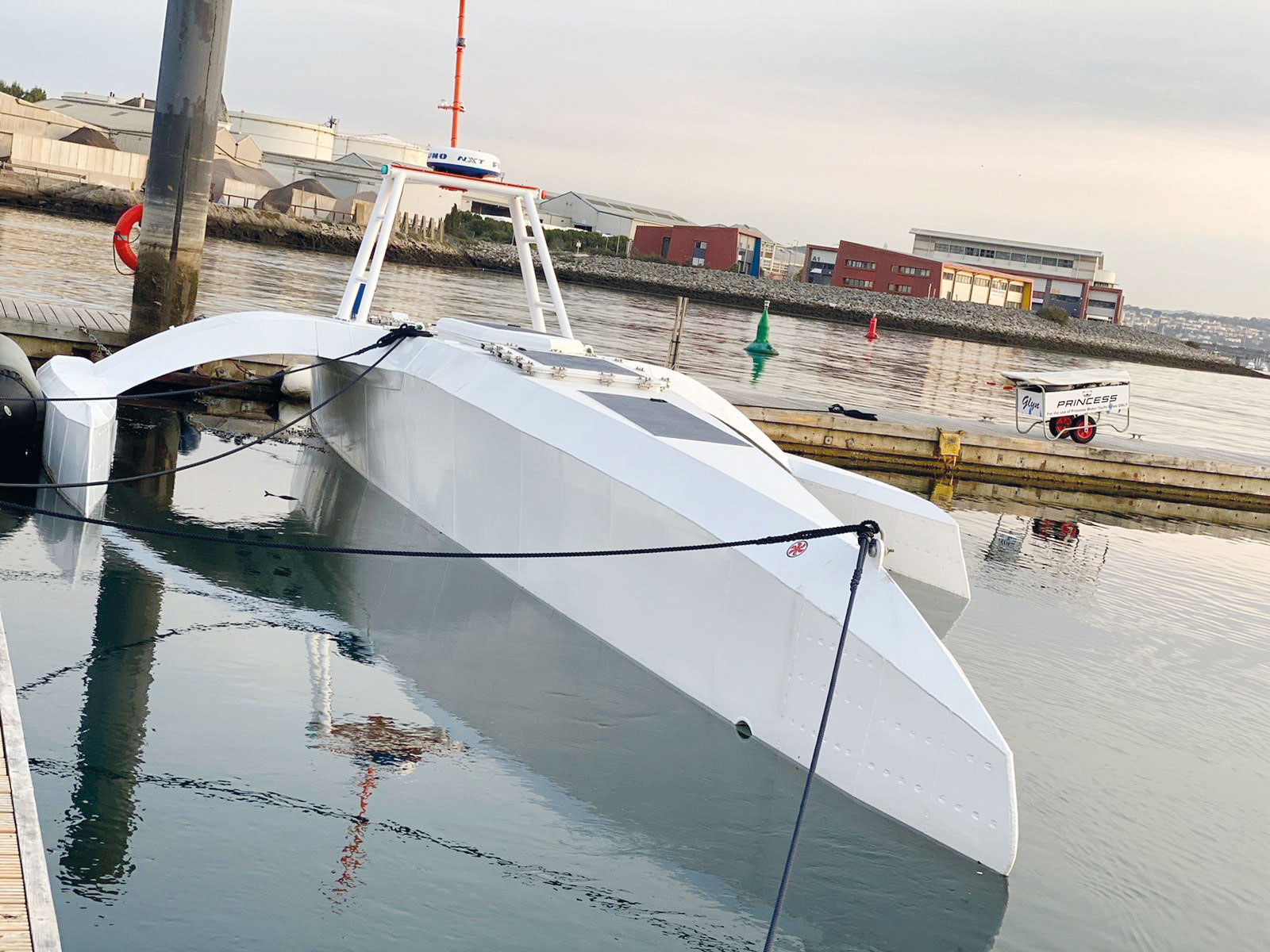It is an exciting time in the world of autonomous shipping, with a number of ground-breaking projects underway.
Revealed to the world last month, Plymouth provided the backdrop for the Mayflower Autonomous Ship’s naming ceremony as representatives from the UK, USA and the Netherlands united on the waterfront for a special ceremony to mark the occasion. As part of the day a ceremonial bottle of Plymouth Gin was poured on the new vessel.
The Mayflower Autonomous Ship will attempt to recreate the voyage the Mayflower made across the Atlantic Ocean 400 years ago. MAS will spend six months in sea trials and undertake various research missions and voyages before attempting the crossing in Spring 2021. The transatlantic voyage will be based on a similar route and pioneering spirit to the 1620 Mayflower.
Designed to provide a safe, flexible and cost-effective way of gathering data about the ocean, the new-generation Mayflower also promises to transform oceanography by working in tandem with scientists and other autonomous vessels to help understand critical issues such as global warming, micro-plastic pollution and marine mammal conservation.
Brett Phaneuf, managing director of MSUBS Ltd, which is constructing the vessel, said: “The Mayflower Autonomous Ship is pushing the technology boundaries forward by crafting a fully autonomous, AI-captained ship capable of safely navigating with no human input.
“The Maritime and Coastguard Agency has been critical in moving the program forward and providing a flexible framework to get to sea and safely test this state-of-the-art technology and in so doing helps to keep the UK as the world leader in maritime autonomy.”
Elsewhere in the world of autonomous craft, SEA-KIT’s remotely-operated uncrewed surface vessel Maxlimer recently mapped over 1,000 sq. km of ocean floor on a 22-day Atlantic mission around Europe’s continental shelf.
Neil Tinmouth, SEA-KIT COO, said: “Our aim was to demonstrate the capabilities of current technologies to survey ocean frontiers at lower cost and with reduced impact on the environment.”
In further autonomous boating news, Ocean Infinity’s Armada will see a number of low emission vessels built that will offer crewed and uncrewed capabilities. Builds of 21m and 36m vessels are underway, as well as the development of a 70m vessel.
Another company, L3 Harris, based on the South Coast, are using their remotely operated vessels in UK waters for a range of functions, whilst XOCEAN continue operations with their fleet of vessels in UK waters and overseas.
Over the past two years XOCEAN has successfully completed more than 10,000 hours of unmanned bathymetric survey off the coasts of Scotland, England and Wales as part of the UK’s Civil Hydrography Programme, administered by the MCA.
The MCA, through the MARLab project and as part of the wider work of the Maritime Future Technologies team, is supporting these projects individually and working on a long-term plan looking at how autonomous ships can be best regulated.
MARLab explores potential regulatory barriers that could impact on the testing and operation of such ships in UK waters, and looks at innovative ways to support the new and fast-evolving industry.
Dr Katrina Kemp, smart ships and automation policy officer for the MCA said: “We believe that autonomous shipping will play an important role in the future of maritime in terms of reducing carbon emissions by using less fuel and allowing vessels to go to places or situations where people may be put at risk.”
Maritime Minister, Robert Courts, concluded: “By being at the forefront of this autonomous technology revolution, we can build upon the ambitions set out in our Maritime 2050 vision to ensure the UK harnesses the economic benefits of these new developments.”




















